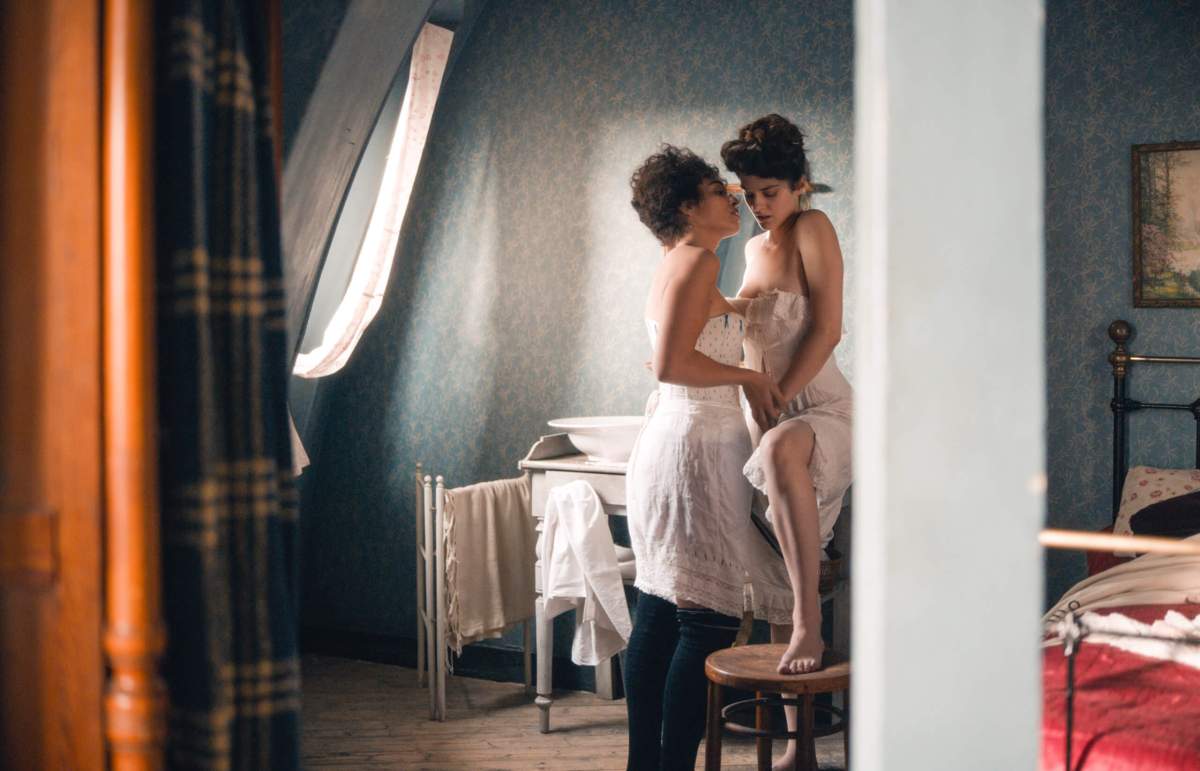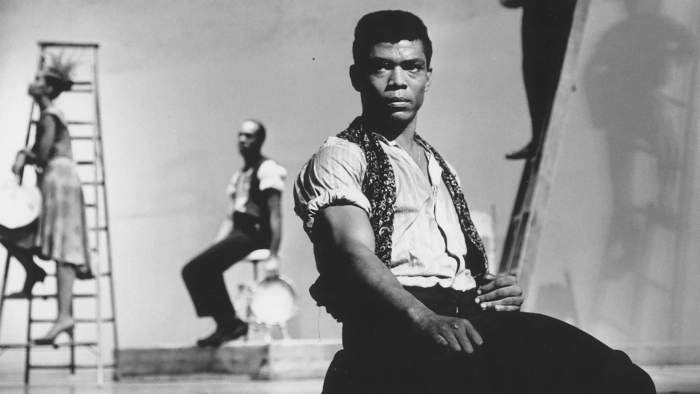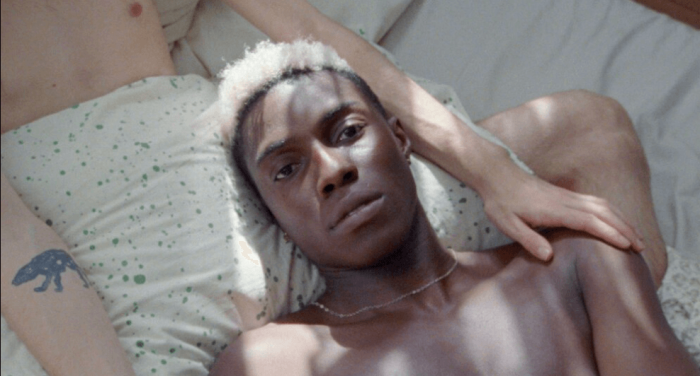Set in late 19th century Paris, “Curiosa” is based on the adulterous relationship between Marie de Heredia (Noémie Merlant of “Portrait of a Lady on Fire”) and Pierre Louÿs (Niels Schneider). The two lovers may be straight, but their affair has queer edges — from a scene of the couple cross-dressing to a few lesbian encounters — as well as a strong feminist bent. (Pierre even wrote poems with lesbian themes.)
Marie may love Pierre, but at the start of this stylish but empty costume drama, she agrees to wed Henri (Benjamin Lavernhe), a wealthier poet. Her marriage is dull, so the headstrong Marie arranges to secretly meet Pierre in his photographic studio, where she poses nude for him before they end up in bed together.
Director Lou Jeunet practically fetishizes Merlant, whose naked body is captured frequently by Pierre’s camera. If nothing else, “Curiosa” amplifies the actress’ alluring eyes, her alabaster skin, and her innate sensuality. And this ripe piece of erotica, which features immaculate period clothes, undresses Merlant as often as it can. (Her costar, Schneider also appears fully nude, but when Marie tries to sneak a photo of Pierre’s penis at one point, he demurs).
Marie is certainly defying social norms in her relationship and her behavior. Wearing Pierre’s clothing while tightening her corset on him, Marie wonders what it would be like to have a penis. Pierre responds by suggesting a threesome with another woman. Marie resists, but she later has an explicit sexual encounter with Zohra (Camélia Jordana), Pierre’s exotic “muse.” Zohra teaches Marie about self- and same-sex pleasure. When Marie later convinces Pierre to court her sister Louise (Mathilde Warnier), Marie and Louise participate in an incestuous photo session for Pierre’s camera. Marie also publishes a scandalous book entitled, “The Fickle Woman,” under a male pseudonym, as was the custom at the time.
However, “Curiosa” is far from a biopic of these famous French poets and writers. There is very little in the way of details about their work and life, as the focus here seems to be on their sex lives. But Jeunet presents the lovers’ provocative activities in a very matter-of-fact way that oddly fails to titillate. Marie’s sex life should be exciting and enticing, but the most passionate scene may be a moment of subterfuge when Marie asks Henri to fetch a photo album so she can steal a kiss from Pierre. As they look at the images, the lovers’ hands dare to entwine, outside of Henri’s field of vision. This is far more sensual than a later scene of Henri listening to Pierre and Marie have sex (in slow-motion no less) through an adjoining wall in the building that houses Pierre’s studio.
The film’s soft-core sensibility is practically soft-headed, and “Curiosa” is surprisingly unsexy. An early scene when Zohra performs fellatio on Pierre’s friend, Jean (Emilien Diard-Detouef) as Pierre and another gentleman watch, is risible and feels pointless. More telling is an episode where Pierre shows Jean his catalogue of intimate images of all of the women he has slept with — which he instantly regrets.
“Curiosa” actually hits on something important when it addresses these ideas of shame and sexual jealousy. When Pierre confesses to having other mistresses, he tells Marie it does not make him love her less. And playing into the sexual double standard, Pierre feels betrayed not just by Henri marrying Marie, but when he discovers Marie slept with Jean. Yet Marie insists on Pierre marrying her sister so they can have excuses to be together. This leads to the admission, “I love you enough to share you with others.” Such morality should generate some emotional impact. So too should Marie’s pregnancy by Pierre. Unfortunately, these key moments fall flat — like much of this handsomely mounted but lackluster film.
It may just be that Jeunet puts the emphasis on the wrong syllable. (Even the music, which is quite modern, feels out of place.) Her focus on the prurient themes feels quaint where it should feel radical. Likewise, the film’s feminism, as indicated by Marie’s agency and owning of her sexuality, feels muted. The film’s queer elements also could have been played up more. (One can read Henri as closeted, but there is no indication he was gay).
“Curiosa” feels like a missed opportunity to showcase risqué sexual behavior in 19th century France. That the film portrays real people but provides little insight into them is also a drawback. Merlant is absolutely radiant on screen, but she does not have enough to do, other than get naked (which for some viewers, may be enough). Schneider is rather uninspired as Pierre, a character more petulant and narcissistic than a fully developed. It is hard to see why Marie loves him, other than for his dashing good looks. At least Lavernhe is appropriately stiff in his role as Henri.
The best thing about Jeunet’s film is its craft. The commitment to creating all of the photographic images is impressive. One of the most interesting scenes has Henri, Marie, and their baby meeting Pierre and going to the zoo. When Pierre takes a photo of Marie and their child, Henri is asked to step out of the frame (an obvious metaphor). But Jeunet shows a series of images of Henri in stop-motion. It is a clever and quirky sequence. One wishes “Curiosa” had more fine moments like this.
CURIOSA | Directed by Lou Jeunet | Opening in Virtual Cinemas, on VOD and Digital on August 13 | Distributed by Film Movement



































